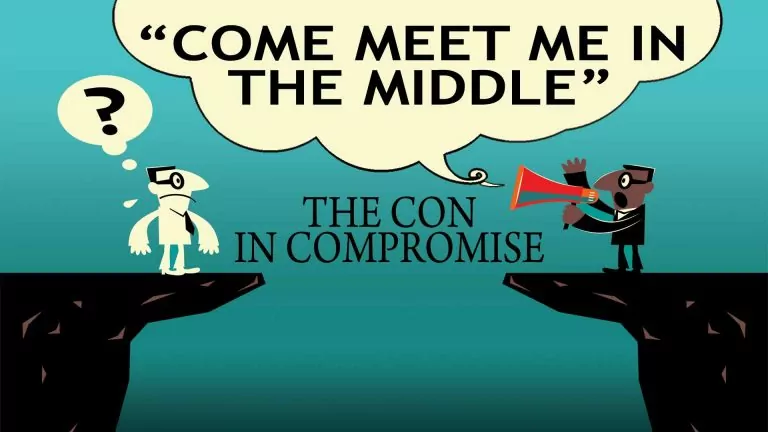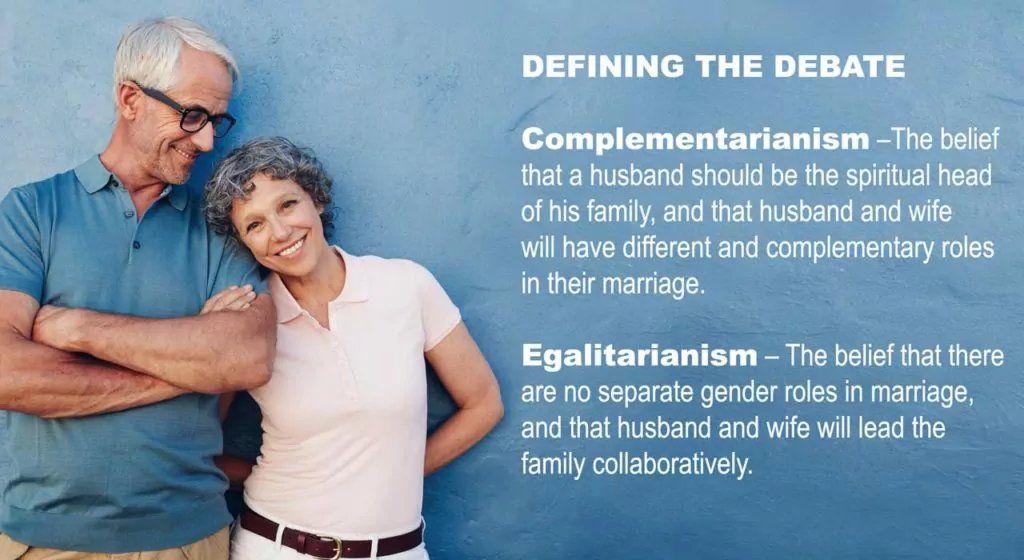A new administration has taken over in the US, and President Joe Biden and friends are using a lot of conciliatory talk about unity, and working together. This same sentiment made an appearance during Superbowl LV, where the viewing audience of millions was treated to a sermon from Jeep and Bruce Springsteen about “meeting in the middle” as Americans.
But the middle of what?
“We should meet in the middle” is:
- a charitable statement if you and your friend live an hour away, have relatively equal means, and want to get dinner at a central location.
- a terrible idea if there’s a yawning chasm between the two of you.
Without fixed goalposts, you really don’t know where you’ll end up when you aim for the middle. Republicans in the States would agree that meeting in the middle with former Rep. Tulsi Gabbard, an outspoken moderate Democrat, is a very different thing from meeting in the middle with Sen. Bernie Sanders. And Democrats would agree that meeting in the middle with Mitt Romney, a moderate Republican, is a very different thing than meeting in the middle with Donald Trump. If you’re negotiating the price of a house, there’s a great difference between meeting in the middle on a price with someone who starts the bid at $1, and someone who starts the bid at $100,000.
A tactic
Often in negotiations the term functions in a similar manner to the word “fair.” Nobody wants to be thought of as unfair, so by leading off as the “fair one” you can cast your opponent as the other, unfair side. The same tactic is sometimes stated as “finding the common ground.” When your opponent in the negotiation is not budging, or more often, before they even know what direction you want them to budge in, you establish that you are, in point of fact, aiming for “the middle.” It sounds so agreeable, but just as soon as a political actor says, “We hope to meet in the middle” he is maneuvering to make his opponent look like the stubborn and unreasonable one. The effect and often the intent is to weaponize people’s sense of neighborliness and appeasement to push a point of view. In short, it’s not negotiation, but manipulation.
We can’t compromise with evil
This middle-ground appeal is both caused by and a symptom of the general lack of conviction of our society. If there is no absolute truth, it’d make sense for everything to be negotiable, right?
In fact, meeting in the middle may be entirely sensible on how the last $10 million of the budget should be allocated between 3 worthy projects.
But meeting in the middle about whether a panel should decide who lives or dies by euthanasia is impossible. There is a fixed right response to euthanasia as an idea, because the government is tasked with punishing evil and murder is evil.
Because believer and unbeliever alike know of the Truth (Rom. 1:18-22), and especially because those of us who have the Spirit have had our eyes opened to see and understand it, we must reject “meeting in the middle” on morality. We must reject “compromise” and “fair-mindedness” whenever it is proposed on principles that cannot be compromised. Right and wrong cannot be bargained, and the man on TV telling you they can is manipulating you.
Need for uncompromised truth
As Christians, we understand the need for showing love to our neighbors and seeking the peace of our community. But we also heed the warnings of David in Psalm 28, who pleads with God to “Not drag me away with the wicked, with those who do evil, who speak cordially with their neighbors but harbor malice in their hearts.” This ought to lead us to recall the words of Christ in sending his disciples out, saying “Behold, I send you forth as sheep in the midst of wolves. Be ye therefore wise as serpents and harmless as doves.” (Matt. 10:16)
And as Christians, we are called to seek the peace of the country God places us in, and to love our neighbors. But these commands find their grounding in the first and greatest commandment, to “Love the Lord your God with all your heart and with all your soul and with all your mind.” (Matt. 22:36-40)
This calls us to exercise wisdom in identifying where there is common ground to stand on, and where the only ground to stand on is the solid Rock that is Christ. In so doing we will ensure that we are no more:
“tossed to and fro, carried about with every wind of doctrine, by the sleight of men, and cunning craftiness, whereby they lie in wait to deceive; but speaking the truth in love, [we] may grow up into Him in all things, which is the head, even Christ” (Eph. 4:14-15).











